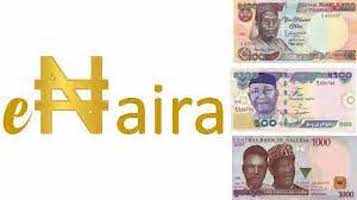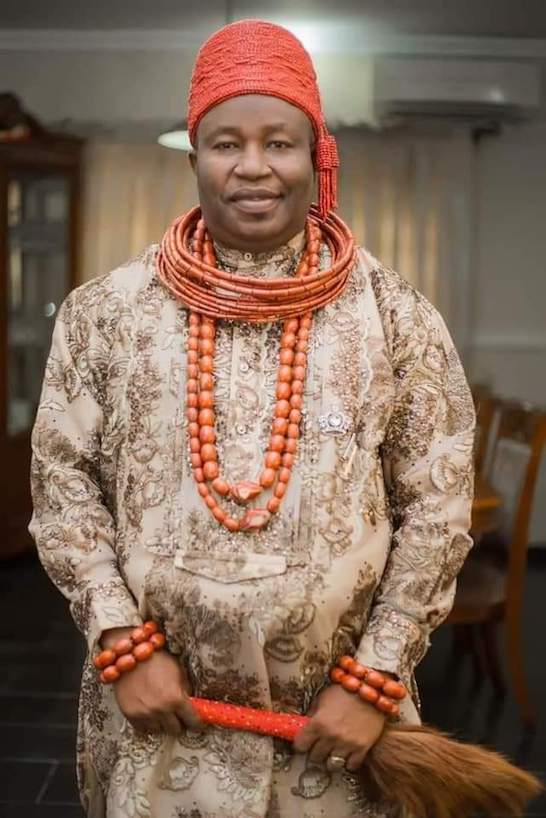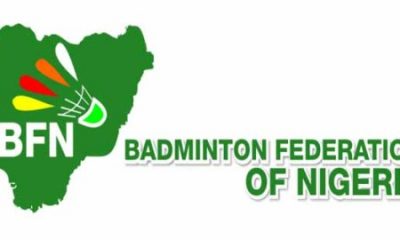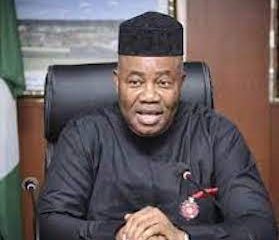FEATURES
Nigeria’s e-Naira: Challenges of Adoption, Potential Benefits

The launch of e-Naira in Nigeria on Oct. 25, 2021 marked a significant milestone toward positioning the country as a pioneer in Africa’s digital currency landscape.
Mr Godwin Emefiele, then Governor of the Central Bank of Nigeria (CBN), had explained then that the digital currency was expected to complement the traditional Naira while offering a range of benefits, including cost-efficiency, enhanced monetary policy effectiveness, and improved financial inclusion.
Notwithstanding these potential advantages, the e-Naira has continued to face acceptance and adoption challenges, more than two years after the currency was officially launched.
Financial experts attribute the reluctance to embrace the e-Naira among Nigerians to the inherent skepticism and concerns surrounding digital currencies and their impact on the economy.
Mr Yinka Rabiu, a director at the Ilorin branch of the CBN, says the concept of digital currencies is relatively new to many individuals, and there is a natural hesitancy to trust a system that operates solely in the digital realm.
Additionally, he says there is a lack of understanding among the general public about the operational mechanisms and security features of the e-Naira, leading to apprehensions about potential risks and vulnerabilities.
“First, it is a new innovation and we need to do more awareness for people to understand the need to change to e-Naira.
“Similarly, commercial banks are not happy with e-Naira because it is free of transaction charges.
“While little merchants are unbothered, market women have little knowledge on it and rural area without network or smart phone can not have access unless using USSD *997#,” says the senior CBN official.
Corroborating, Mr Femi Babatunde, a financial expert, said that the digital currency represents a fundamental shift in currency which promises the convenience of digital money with the reliability of government backing.
“Its significance lies in the potential to modernise financial systems and streamline transactions, marking the next step in the evolution of money.
“Digital currencies stand to revolutionise the financial landscape by enhancing liquidity flow and streamlining banking operations. The advantages they offer extend to cross-border transactions, reducing costs and time involved,” he says.
A widespread adoption, he notes, could drastically improve financial inclusivity and efficiency, transcending traditional banking models.
Furthermore, he avers that the broader technological infrastructure in Nigeria presents a significant hurdle to the widespread adoption of the e-Naira.
According to this expert, limited internet connectivity, particularly in rural areas, poses a challenge for individuals who may not have consistent access to the internet or smartphones, which are often essential for digital currency transactions.
He explains that enhancing the technological infrastructure to support a seamless transition to digital currency is crucial for overcoming this barrier to adoption.
But for Mr Jude Osunbunmi, an entrepreneur, low enlightenment and serious security concerns contribute to the hesitancy surrounding the e-Naira.
With the increasing prevalence of cyber threats and fraudulent activities, he says he is apprehensive about the security of the digital assets and the potential vulnerabilities of the e-Naira system.
Osunbunmi asserts that addressing these concerns through robust security measures and educational initiatives is essential for building trust and confidence in the e-Naira among the public.
Despite these challenges, Rabiu, the CBN director, says there are numerous benefits that the public is missing by not embracing the e-Naira.
Besides the fact that the e-Naira presents the CBN an opportunity to enhance the effectiveness of monetary policy and streamline the government’s capacity to deploy targeted social interventions, Rabiu says it holds the promise of expanding financial inclusion and providing access to formal financial services.
“This is especially critical in a country where a sizable portion of the population remains excluded from the traditional banking system.
“By enabling individuals to transact digitally and access a range of financial services, the e-Naira has the potential to empower marginalised communities and stimulate economic growth,” says the CBN official.
Sharing a similar sentiment, Mr Ben Eze, who is a financial advisor, observed that the adoption of the e-Naira could offer Small and Medium-sized Enterprises (SMEs) greater access to a broader customer base, streamline their financial operations, and reduce the reliance on cash transactions, thereby enhancing efficiency and transparency.
To address the barriers to adoption and maximising the benefits of the e-Naira, Eze advocates collaboration among various stakeholders is paramount.
“The CBN, in partnership with financial institutions, technology providers, and other relevant entities, must prioritise educational initiatives to enhance public awareness and understanding of the e-Naira.
“By demystifying digital currencies and elucidating their potential advantages, the misconceptions and skepticism surrounding the e-Naira can be mitigated.
“Moreover, investments in enhancing the technological infrastructure are imperative to ensure equitable access to digital currency transactions across urban and rural areas.
“This necessitates strategic partnerships with telecommunications companies and internet service providers to expand connectivity and promote digital inclusivity,” says the financial advisor.
For many analysts, the e-Naira represents a transformative opportunity for Nigeria to modernise its financial landscape, drive inclusive economic growth, and foster innovation in the digital economy.
They note that while the challenges of adoption are significant, the potential benefits of the e-Naira are equally compelling.
They agree that through collaborative efforts among stakeholders, proactive measures to address concerns and targeted initiatives to enhance accessibility and usability, the e-Naira can pave the way for a more inclusive, efficient, and resilient financial ecosystem in Nigeria. (NANFeatures)
NEWS
Akpabio, Oborevwori, Ogbuku to grace 13th Extraordinary General Assembly of South–South Monarchs Forum

The 13th Extraordinary General Assembly of the Forum of South–South Monarchs is scheduled to hold in Asaba from May 21 – 22 May, with the President of the Senate and Chairman of the National Assembly, Senator (Dr) Godswill Obot Akpabio CON as Special Guest of Honour and the Executive Governor of Delta State, Excellency Rt Hon Elder Sheriff FO Oborevwori as the Chief Host.
A statement issued in Abuja on Sunday by the Chairman, Planning Committee, HRM Pere Stanley Perediegha Luke – Kalanama VIII (JP) – Pere of Akugbene – Mein Kingdom, and 1st Vice Chairman, Delta State Council of Traditional Rulers, said the event will hold at the Unity Hall, Government House, Asaba, on the theme: “Strengthening Stakeholder Collaboration for Development of the South – South Region: The Role of the Traditional Institution. ”
According to the statement, the Managing Director of the Niger Delta Development Commission (NDDC), Chief Dr Samuel Ogbuku, is expected to be the Guest Speaker, while the keynote address will be presented by Adele L. Jinadu, former Executive Director, Centre for Advanced Social Sciences (CASS) Port Harcourt and Adjunct Professor, Department of Political Science, University of Lagos.
Membership of the Forum consists of all First-Class Traditional Rulers and Members of the State Councils of Traditional Rulers of the six States of the South – South geopolitical zone: Akwa Ibom, Bayelsa, Cross River, Delta, Edo and Rivers States.
The statement also explained that the 13th Extraordinary General Assembly of the Forum is being organized in partnership with the Ashcraft Centre for Social Science Research to intensify collaboration, deepen synergy and articulate a common front among the diverse Stakeholders in the Region and beyond towards achieving the strategic imperatives of security and sustainable socio-economic development for the Region.
“The Forum is consciously aware that emerging national realities require the collective and deliberate action of all the gatekeepers to achieve the aspirations of the founding fathers and people of the Region,” it added.
Giving a background to the meeting, the statement noted that the Asaba event was in consonance with the fact that sustainable development, peace and security are major factors in nation building and national security, which constitute the fundamental underpinnings in the existence and survival of any society or nation.
“Therefore, the traditional institution must be alive to its responsibilities in achieving its natural mandate of promoting peaceful co-existence, peace and security in their domains, and also fostering national security which is fundamental in national development,” it said.
It expressed the firm belief of the South – South Monarchs Forum believes that by building Stakeholder synergy, the meeting shall engender shared responsibilities towards achieving the institutionalization of the road map and priorities of the policy frameworks crafted to boost economic revival, security and stability of the Region.
“It is also the expectation of the Forum that the derivatives from the meeting shall regenerate confidence in securing Foreign Direct Investment into the Region’s productive Sectors as canvassed by His Excellency President Bola Ahmed Tinubu, GCFR, at different international fora; and also boost capital growth and turnkey business startups and development,” it said.
While lamenting the palpable security challenges in the South-South Region, especially the unfortunate killing of 17 military personnel in Okuama community in Ughelli South LGA on 14th March, 2024, the said it was expected that the Asaba meeting would provide the avenue to extensively deliberate on how to avoid recurrence in any community within the Region.
It expressed appreciation to the Senate President, Senator Godswill Obot Akpabio; the Executive Governor of Delta State, Rt Hon Sheriff FO Oborevwori; the Managing Director of NDDC, Chief Dr Samuel Ogbuku and; all political leaders from the zone for their support geared towards making the forthcoming meeting a success.
“The subject matter is very sensitive to the aspirations of the Region. It is hoped that the proceedings from this General Assembly shall also inject fresh ideas and initiatives into the overall architecture of the Forum to reinforce a systemized and collective framework in actualizing its mandate.
“We also look forward to the robust participation and inputs of all Stakeholders, both in the public and private circles towards achieving the strategic imperatives of this event. The Forum is hopeful that all Stakeholders will consider this as a patriotic duty to our fatherland and contribute to the success of this event,” the statement said.
FEATURES
Bobrisky, Naira Abuse and Matters Arising

In February 2024, the mass media was awash with reports of the arrest of Bassey Idio for currency racketeering by operatives of the Uyo Zonal Command of Economic and Financial Crimes Commission (EFCC).
The 59-year-old ‘naira trader’ was apprehended following intelligence and surveillance revealing his illicit cash transactions involving both local and foreign currencies.
He was found selling N700,000 new Naira notes, comprising 12 bundles of N500 notes totaling N600,000, and a bundle of N1000 notes amounting to N100,000.
Idio, later confessed to the crime and was convicted.
Before then, in a widely circulated video, Federal lawmaker Ibrahim Abuna was seen distributing money to a crowd presumed to be his constituents.
Abuna was representing Mafa, Dikwa and Konduga federal constituency of Borno inthe House of Representatives.
He demonstrated his generosity by tossing money from a balcony, disregarding the potential risk of a stampede as people fought to catch the airborne naira notes.
The recipients consisted of young men and women, as well as elderly persons.
Sadly, no arrest or conviction was made since 2021 when the video was made.
On daily basis the Abuna scenario is repeated in different parts of the country as celebrities and politicians try to outdo one another as they engage in money spraying at social events and even political gathering.
Recently, there was a dramatic twist in this otherwise “normal” behavior among Nigerians as a Federal High Court in Lagos sentenced Idris Okuneye ‘!Bobrisky’, a popular crossdresser, to six months in prison for naira abuse.
Justice Abimbola Awogboro, popularly known as Bobrisky, who was prosecuted by the EFCC, was jailed as a deterrent to those that may engage in naira abuse.
The judge also said that Bobrisky should use his influence to teach people about legal money practices.
He said Bobrisky’s offence is contrary to, and punishable, under Section 21(1) of the Central Bank Act 2007.
Naira abuse has been illegal in Nigeria for a long time, but spraying naira notes or throwing its bundles during social events has been a tradition in Nigeria for many years but unfortunately those in indulge in them have not been brought to book under the Act.
The Act recognses naira abuse to include actions like throwing, stamping, engraving, selling, and mutilating the currency. They carry a penalty of a ₦50,000 fine or six months in prison.
According to the Act, tampering includes impairing, diminishing, or lightening coins or notes, as well as defacing them through stamping, engraving, mutilating, or other forms of deliberate abuse.
It notes that spraying, dancing, or stepping on the naira during social occasions or otherwise is considered an abuse and defacing of the currency, punishable under this Act.
A financial expert, Mr Rilwan Afolabi, says the Act aims to protect the integrity and value of Nigeria’s currency by imposing strict penalties on those who tamper with or abuse it.
According to him, by defining various forms of tampering and abuse, including common practices like spraying or dancing on the naira during social events, the Act seeks to deter such behaviours land promote respect for the currency.
“The inclusion of penalties for hawking, selling, or trading in Naira notes further reinforces the seriousness with which the law treats any actions that could undermine the currency’s stability and legitimacy.
“Overall, the Act reflects the CBN’s commitment to maintaining the integrity of Nigeria’s monetary system and ensuring public confidence in the national currency,” he said.
However, many people think the punishment meted to Bobrisky was too harsh and want leniency, while others suggest community service for non-violent crimes like this.
Social activist, Aisha Yesufu, has criticised Bobrisky for admitting guilt to the charge of naira mutilation.
In a write-up on X, formerly known as Twitter, Aisha wondered why Bobrisky quickly admitted guilt.
“Who advised him to plead guilty?”, she screamed, while raising concerns about how spraying money could be equated to mutilating money and why the law is selectively enforced.
She added: “Worst case scenario, I would have advised him to plead ‘No Contest.’
Yesufu raised more posers: “If spraying money is considered mutilation, then what about politicians throwing money at people?
“Mutilation and spraying money how are they the same? Did Bobrisky pick a scissors and started shredding the Naira
“We just have a jungle where anything goes because some people’s morality is offended.
“If Bobrisky has crimes he has committed, prosecute him on those and not this selective prosecutions.”
Also reacting, Deji Adeyanju, a lawyer and social activist, expressed concern over the six-month sentence handed to Bobrisky.
The sentence, delivered without the option of a fine, has raised questions about the severity of punishment for what some perceive as a cultural practice.
While acknowledging the importance of upholding the law, Adeyanju highlighted Bobrisky’s status as a first-time offender and his pledge to utilise his platform to raise awareness against Naira mutilation.
He urged the courts to consider the cultural context surrounding such offenses and emphasised the need for extensive public sensitisation before prosecution.
The issue of selective enforcement was also raised, as Adeyanju questioned why he was singled out for prosecution when others were reportedly engaged in similar acts during the event in question.
He cautioned against the perception of bias in law enforcement and called for a fair and impartial approach to justice.
In light of these concerns, Adeyanju proposed an alternative approach to handling such crimes as Naira mutilation, advocating community service as an ppropriate form of punishment.
He reaffirmed his commitment to upholding the rule of law and protecting human rights while urging security agencies to consider alternative measures for addressing such offenses.
Adeyanju said that the ongoing debate surrounding Bobrisky’s sentence underscored broader discussions about cultural practices, law enforcement and the balance between tradition and legal compliance in Nigerian society.
As stakeholders continue to weigh in on the matter, it remains to be seen how authorities will address the complexities surrounding Naira mutilation and similar offenses in the future.
Also, they call for comprehensive campaigns on the importance of preserving the integrity of naira.
Such initiatives, they say, could help instill a culture of respect for the currency and discourage behaviours that undermine its integrity and value. (NANFeatures)
FEATURES
President Tinubu at 72: Celebrating a Life in Forward Motion

By Keem Abdul
He is 72 on Friday, March, 29, 2024. But in a nod to the current mood across the nation (occasioned by the hardship and insecurity in the land) President Bola Ahmed Tinubu has said he wouldn’t be celebrating that auspicious day.
Instead, according to a release from his media office, he has told his friends, well-wishers and associates to donate to charity rather than spend valuable resources placing goodwill messages and advertorials in print and electronic media outlets to mark the day.
The president, according to the release made particular reference to the tragic killing of a number of soldiers and police officers in Delta State, as well as the serious security breaches by criminal elements in various parts of Nigeria (which has led to an unacceptably high toll of death, injury and loss of property) as reasons why a celebration at this time would be grossly inappropriate – if not downright insensitive.
In place of a celebration, Tinubu says he would use the day to reflect and re-dedicate himself to the task of building a more stable, secure, prosperous and united Nigeria – in line with his mandate as the leader of the commonwealth, namely, to make life better for all her citizens. He, however, acknowledged as some sort of a birthday gift, the recent release of the students kidnapped some weeks ago in Kaduna and Sokoto States. But a gift of far greater import, he added, would be the emergence of a more stable, more secure, virile, prosperous and united Nigeria.
That being said, though, even as the President reflects on his life’s journey so far and his ascendance to the highest office in the land at this time, many Nigerians and even non-Nigerians will also be pondering the phenomenon called Asiwaju Bola Ahmed Tinubu, GCFR, the combination of qualities and attributes (and the unique set of circumstances) that have brought him to this moment in his life and in the evolution of the Nigerian nation.
It is hard to measure the essence of a life as multifaceted and dynamic as that of the man Bola Tinubu. Suffice it to say – as those who know him well have repeatedly done – that he remains an enigma. That description of one’s essential character may be a cliché, but in the case of Asiwaju Bola Tinubu, it is all too true.
Since the advent of Nigeria’s current democratic dispensation in 1999, Asiwaju Tinubu has become perhaps the most constant factor in defining the outcomes of electoral contests in the country – and even more so in his home state of Lagos. His almost 100% success rate in this regard is not by accident. A great writer once said that the heights great men attained are ‘not by sudden flight.’
Tinubu’s success as a politician testifies to his capacity for deep reflection and prompt action in equal measure.
On one hand, he has always been deliberate and intentional in the planning and execution of his strategies, doing nothing that is superfluous or forced. His caution, in other words, is matched by his ability to execute his plan – in a way that meshes into the whole vision which he has crafted for himself and the people that he leads. Every step he takes has been methodical and fills a gap in his overall quest for the enthronement of a continuous cycle of progress and prosperity within his sphere of influence.
He is a man with extra ordinary sensory perception who’s in tune with his inner self thus making him understand that there’s no force on earth strong enough to restrict the procession of promises of God. His perception wasn’t tainted by experience of betrayals rather he recognised that’s there’s no betrayal that he went through that didn’t work together for his good, that there’s never a dagger thrown at him that God didn’t convert to a stronger him.
1999 to date has been a time of almost constant struggle for Asiwaju Tinubu. His battles with the federal government, and with the internal opposition in Lagos, are too well-known to recount here. But the question is: Why does he fight so hard, For whom, or what, is he fighting? Wealth? Power for power’s sake? Fame and recognition? If so, why does he still keep fighting NOW, even AFTER having acquired these things in some measure?
One unmistakable answer to these questions – no matter one’s background or political and religious affiliation – would be that Asiwaju Tinubu is a man driven, not just by personal ambition or group interest, but by the altruistic desire to confront the forces of economic underdevelopment and social rot, no matter what it may cost him personally. His willingness to go all out in pursuit of his goals and convictions – even if it means sacrificing himself for others and the society as a whole, is truly remarkable.
In the rough-and-tumble of Nigerian politics where elections are usually a clash of weapons rather than a contest of ideas and ideologies, and most politicians are devoid of both, Tinubu’s principles and idealism can be hinged on the simple South African maxim of “Ubuntu” (I am because we are).
This understanding of the value of an unshakable bond between brethren is what has shaped the dynamics of Tinubu’s actions and engagements with other stakeholders. On more than one occasion, he has professed a desire to build the community; the people in it and the institutions and traditions that govern them – based on his belief that once a society is healthy; all elements within it will be significantly impacted.
It is also the reason he has built the careers of so many other leaders, men and women who have gone on to become political giants in their own right since 1999 – again, based on his belief that various people with diverse capacities in various places can coalesce to build a better and stronger society. No matter what his detractors may say, Tinubu’s investment in the lives and political fortunes of others is far from personal or individualistic, far from it.
Many distinguished persons in the society are the products of this investment. The results so far are a demonstration of the fact that the power to make a difference in the lives of Nigerians is within his grasp – and in our grasp if we all make an effort.
Much has been said about the Jagaban’s unique combination of fearlessness and humanity. Though he never goes out of his way to court controversy, he never runs away from one, especially when he has restrained himself and sought all ways to seek rapprochement with the other party. His capacity for compromise and respectful dialogue is how he has been able to build a team of highly dedicated men and women around himself.
As his close associates mark his 72 years on earth (one way or another) or join him in his reflections on the state of Nigeria and his mandate to lift the country and its people out of our present quagmire, it’s the prayer of all right thinking and patriotic Nigerians that the good Lord who has seen fit to allow Tinubu to occupy that lofty position will keep him in good health and preserve him so that he can fulfil the purpose for which God brought him into existence, that God will strengthen him, equip him with the physical energy and profound wisdom, understanding and knowledge that he needs to drive the vision that transformed Lagos into a globally-competitive megacity and the 5th largest economy in Africa.
His promise to replicate that transformation on a national scale is still on track, and with the help of God and the committed cooperation of the Nigerian people, the mission will be fulfilled.
Happy birthday, Mr. President!
May your strength be Renewed. God bless Mr. President. God bless Nigeria.
Keem Abdul, publisher and writer, hails from Lagos. He can be reached via +2348038795377 or Akeemabdul2023@gmail.com





















